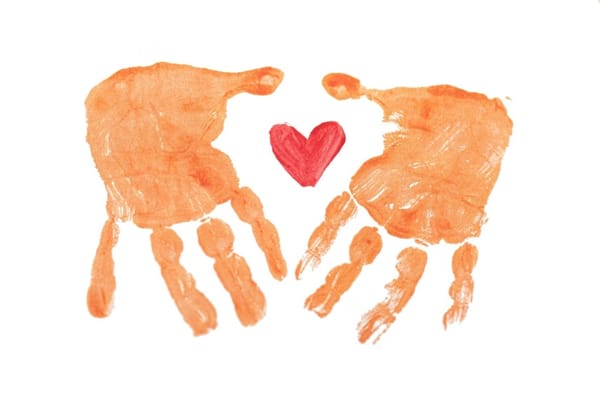Italian biologist Daniel Lumera presents compelling evidence that kindness may be the key to a longer, healthier life, suggesting that compassionate individuals not only live longer but also experience fewer illnesses throughout their lives.
Biological and Psychological Mechanisms
The biological and psychological mechanisms underlying the relationship between kindness and longevity are complex and multifaceted. At the physiological level, acts of kindness have been shown to stimulate the release of oxytocin, often referred to as the "love hormone" or "bonding hormone." This neuropeptide plays a crucial role in social bonding, stress reduction, and cardiovascular health. Increased oxytocin levels are associated with lower blood pressure and reduced inflammation, both of which are key factors in longevity and overall health.
Kind behaviors also trigger the release of endorphins, the body's natural painkillers and mood elevators. This biochemical response not only promotes feelings of well-being but also contributes to pain management and immune system function. The regular release of these "feel-good" chemicals through acts of kindness can create a positive feedback loop, reinforcing prosocial behaviors and their associated health benefits.
From a psychological perspective, practicing kindness has been linked to increased levels of life satisfaction and overall happiness. This positive emotional state has far-reaching effects on mental health, reducing the risk of depression and anxiety disorders. Moreover, individuals who regularly engage in kind acts often report a greater sense of purpose and meaning in life, which has been associated with better health outcomes and increased longevity.
Kindness also appears to influence cognitive function positively. Engaging in prosocial behaviors has been shown to activate regions of the brain associated with reward and pleasure, potentially contributing to cognitive resilience as we age. This cognitive engagement, coupled with the social interactions often involved in acts of kindness, may help protect against cognitive decline and dementia in later life.
The stress-buffering effect of kindness is another crucial mechanism. Chronic stress is a well-known risk factor for numerous health issues, including cardiovascular disease, immune dysfunction, and accelerated aging. Kind behaviors and the positive social interactions they foster can significantly reduce perceived stress levels. This reduction in stress not only has immediate benefits for mental well-being but also contributes to long-term physical health by mitigating the harmful effects of chronic stress on the body's systems.
Furthermore, the practice of kindness often involves perspective-taking and empathy, which can lead to improved emotional regulation. This enhanced ability to manage emotions effectively can reduce the physiological toll of negative emotional states on the body, potentially slowing the aging process at a cellular level.
Research has also suggested that kindness may influence telomere length, a key marker of cellular aging. Telomeres are protective caps at the ends of chromosomes that shorten with age and stress. Some studies have indicated that individuals who engage in regular prosocial behaviors may have longer telomeres, potentially slowing the aging process at a fundamental biological level.
The reciprocal nature of kindness creates a positive social environment that can have far-reaching health implications. When individuals experience kindness, they are more likely to pay it forward, creating a ripple effect of positive social interactions. This cycle of kindness can lead to the development of supportive communities, which have been consistently linked to better health outcomes and increased longevity.
In conclusion, the biological and psychological mechanisms through which kindness influences health and longevity are diverse and interconnected. From hormonal changes and stress reduction to improved cognitive function and cellular health, the practice of kindness appears to have wide-ranging benefits that contribute to a longer, healthier life. As research in this field continues to evolve, it may provide further insights into how cultivating kindness can be leveraged as a powerful tool for promoting individual and public health.
Kindness and Social Relationships
Kindness plays a pivotal role in shaping and strengthening social relationships, which in turn contribute significantly to overall health and longevity. Research has consistently shown that individuals with strong social connections tend to live longer and experience better physical and mental health outcomes.
Acts of kindness foster positive social interactions, which are fundamental to building and maintaining strong relationships. When people engage in kind behaviors, they create an environment of trust, reciprocity, and mutual support. This social cohesion has been linked to numerous health benefits, including reduced stress levels, improved cardiovascular health, and enhanced immune function.
The impact of kindness on social relationships extends beyond immediate interactions. Kind individuals often attract others who share similar values, creating a network of supportive relationships. These networks provide emotional support during challenging times, which can buffer against the negative health effects of stress and adversity. Studies have shown that people with strong social support systems are more resilient to life's challenges and recover more quickly from illness.
Moreover, kindness in social relationships contributes to a sense of belonging and community integration. This feeling of connectedness has been associated with lower rates of depression, anxiety, and other mental health issues. The sense of purpose and meaning derived from being part of a supportive community can also contribute to increased life satisfaction and overall well-being.
In the context of romantic relationships, kindness has been identified as a key factor in relationship satisfaction and longevity. Couples who practice kindness and generosity towards each other report higher levels of relationship satisfaction and are more likely to stay together long-term. This stability in intimate relationships has been linked to better health outcomes and increased longevity.
Kindness also plays a crucial role in workplace relationships. Environments characterized by kindness and mutual respect tend to have lower levels of workplace stress and higher job satisfaction. Given that many adults spend a significant portion of their lives at work, the health implications of positive workplace relationships are substantial. Lower workplace stress is associated with reduced risk of cardiovascular disease, improved immune function, and better mental health outcomes.
Intergenerational relationships benefit greatly from kindness as well. When younger generations show kindness and respect towards older adults, it can help combat feelings of isolation and loneliness often experienced in later life. Conversely, when older adults engage in kind acts towards younger generations, it can provide them with a sense of purpose and social engagement, both of which are associated with healthy aging and increased longevity.
The practice of kindness in social relationships also has a ripple effect. When individuals witness acts of kindness, they are more likely to engage in kind behaviors themselves, creating a positive cycle that can transform entire communities. This collective increase in prosocial behavior can lead to broader societal benefits, including reduced crime rates, increased civic engagement, and improved public health outcomes.
It's important to note that while kindness in social relationships is generally beneficial, the quality of relationships matters more than quantity. A few deep, meaningful connections characterized by mutual kindness and support can be more beneficial for health and longevity than a large number of superficial relationships.
In conclusion, kindness serves as a powerful catalyst for building and maintaining strong, supportive social relationships. These relationships, in turn, contribute significantly to individual and community health, potentially leading to increased longevity and improved quality of life. By fostering kindness in our social interactions, we not only enhance our own well-being but also contribute to a healthier, more resilient society as a whole.
Cultivating Daily Kindness
Cultivating kindness in daily life is a powerful way to enhance personal well-being and contribute to a more compassionate society. Daniel Lumera, the Italian biologist advocating for the health benefits of kindness, emphasizes the importance of integrating kind actions into our everyday routines. Here are several practical strategies for fostering kindness in daily life:
- Practice self-compassion: Kindness begins with how we treat ourselves. Developing a gentle and understanding attitude towards our own shortcomings can help reduce stress and increase overall well-being. This self-compassion can then naturally extend to others.
- Perform random acts of kindness: Engage in small, unexpected acts of kindness throughout the day. This could include offering a compliment to a stranger, helping a colleague with a task, or leaving an encouraging note for someone to find. These actions not only benefit the recipient but also boost the giver's mood and sense of purpose.
- Cultivate gratitude: Regularly expressing gratitude can shift focus towards the positive aspects of life and increase overall kindness. Keeping a gratitude journal or sharing appreciations with others can foster a more kind and compassionate outlook.
- Active listening: Practice giving full attention to others during conversations without interrupting or judging. This form of kindness demonstrates respect and can significantly improve relationships and communication.
- Volunteer: Engaging in regular volunteer work provides opportunities to practice kindness on a larger scale. It can also increase social connections and provide a sense of purpose, both of which contribute to longevity and well-being.
- Mindful communication: Choose words carefully, considering their impact on others. Using kind and supportive language, even in challenging situations, can create a more positive environment and reduce conflict.
- Empathy exercises: Regularly put yourself in others' shoes to understand their perspectives. This practice can increase compassion and lead to more considerate actions.
- Forgiveness: Letting go of grudges and practicing forgiveness, both towards others and oneself, can reduce stress and improve mental health. Lumera suggests that forgiveness is a key component of kindness that contributes to longevity.
- Kindness meditation: Incorporate loving-kindness meditation into daily routines. This practice involves directing positive thoughts and wishes towards oneself and others, which can increase empathy and compassion.
- Technology mindfulness: Use technology and social media platforms to spread positivity and support others, rather than engaging in negative interactions or comparisons.
- Environmental kindness: Extend kindness to the environment through sustainable practices and care for nature, which can foster a sense of connection to the wider world.
- Kindness rituals: Establish daily or weekly rituals focused on kindness, such as writing a thank-you note to someone or performing a specific act of service.
Implementing these practices can create a positive feedback loop, where the benefits of kindness reinforce the behavior, making it easier to maintain over time. As Lumera's research suggests, consistently practicing kindness can lead to significant improvements in physical and mental health, potentially contributing to increased longevity.
It's important to note that cultivating kindness is not about perfection but about consistent effort and intention. Even small acts of kindness can have a cumulative effect on personal well-being and social relationships. By making kindness a deliberate part of daily life, individuals can contribute to their own health and longevity while also creating a more compassionate and supportive community around them.
Public Health Implications
The research on kindness and its potential impact on longevity and health has significant implications for public health strategies and policies. By recognizing kindness as a key factor in promoting overall well-being, health organizations and policymakers can develop innovative approaches to improve population health outcomes.
One of the primary public health implications is the potential for cost-effective interventions. Promoting kindness and prosocial behaviors could be a relatively low-cost method to address various health issues simultaneously. Unlike expensive medical treatments or interventions, kindness-based programs could be implemented widely with minimal financial investment, potentially yielding substantial returns in terms of reduced healthcare costs and improved population health.
Integrating kindness-promoting activities into existing public health programs could enhance their effectiveness. For example, incorporating kindness and empathy training into school curricula could help foster a generation of individuals more attuned to the needs of others and more likely to engage in health-promoting behaviors. This early intervention approach could have long-lasting effects on community health and social cohesion.
Workplace wellness programs could also benefit from including kindness-based initiatives. By encouraging a culture of kindness and mutual support in professional environments, organizations could potentially reduce workplace stress, improve employee mental health, and decrease absenteeism. This, in turn, could lead to increased productivity and reduced healthcare costs for employers and employees alike.
Community-based kindness initiatives could be particularly effective in addressing social determinants of health. By fostering stronger social connections and support networks, these programs could help mitigate the negative health impacts of social isolation and loneliness, particularly among vulnerable populations such as the elderly or those living in disadvantaged areas.
From a policy perspective, recognizing the health benefits of kindness could lead to the development of "kindness metrics" as indicators of community well-being. Policymakers could use these metrics alongside traditional health indicators to assess the overall health of communities and guide resource allocation for public health initiatives.
The potential impact on mental health services is also significant. Incorporating kindness-based therapies and interventions into mental health treatment protocols could provide additional tools for managing conditions such as depression and anxiety. This could potentially reduce the reliance on pharmacological interventions and offer more holistic approaches to mental health care.
Public health campaigns focused on promoting kindness could leverage social media and other digital platforms to reach wide audiences. These campaigns could educate the public about the health benefits of kindness and provide practical tips for incorporating kind acts into daily life, potentially creating a ripple effect of positive health behaviors across communities.
Research into the health impacts of kindness could also inform urban planning and community design. Creating spaces that facilitate social interaction and promote kind behaviors, such as community gardens or public gathering areas, could contribute to healthier, more connected communities.
However, it's important to note that while promoting kindness as a public health strategy holds promise, it should not be seen as a replacement for addressing systemic health inequalities or providing necessary medical care. Rather, it should be viewed as a complementary approach that can enhance existing public health efforts.
In conclusion, the public health implications of research linking kindness to longevity and reduced illness are far-reaching. By incorporating kindness-promoting strategies into public health policies and programs, there is potential to create more resilient, healthier communities while potentially reducing the economic burden on healthcare systems. As research in this field continues to evolve, it may provide valuable insights for shaping future public health approaches that prioritize not just physical health, but also social and emotional well-being.
Source:
Italian biologist argues that kind people live longer and get sick less












Member discussion